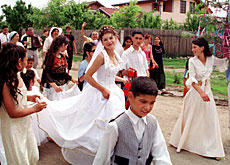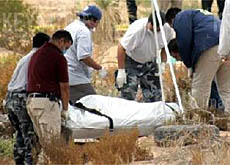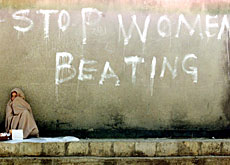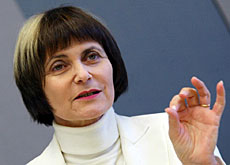Swiss leads the fight against forced marriage

Zurich member of parliament Rosmarie Zapfl-Helbling is spearheading debate on forced marriage at the Council of Europe.
A member of the commission for equal opportunity at the Council’s Parliamentary Assembly in Strasbourg, Zapfl-Helbling has been an advocate of women’s rights for 40 years.
The Swiss parliamentarian has been charged with preparing a report on the issue to be presented next June
“Each year, many women, adolescent and even young girls are married against their will,” she told a hearing of European parliamentarians in the Belgian city of Antwerp on Monday.
“Nothing can justify such marriages. Everyone has a right to their own will in life.”
The hearing was organised by the sub-committee on violence against women of the Parliamentary Assembly of the Council of Europe (PACE).
Amongst those invited to attend were representatives of organisations working with victims, Belgian and French local officials, and victims of forced marriages or marriages of convenience.
“This hearing should allow us to discover the extent of the phenomenon and determine measures to stamp out this practice,” the Christian Democrat parliamentarian explained.
It is the first time that the Council of Europe has studied forced marriage.
“Major problem”
“This is a major problem that affects all European countries,” Zapfl-Helbling stressed.
“In Switzerland, the issue is never raised. But when I talk to teachers, all know of cases of young girls being forcibly married.”
The Swiss justice ministry has promised Zapfl-Helbling that it will provide figures to support her report.
It seems that the phenomenon is on the increase. In France, it is estimated that there are 70,000 young girls who are victims of forced marriage.
Mostly they are young foreign girls, or French nationals whose families come from north Africa or Asian countries like Pakistan or Sri Lanka.
But Zapfl-Helbling underlined that the finger should not be pointed at Islam. “Forced marriages are not the sole preserve of Muslim families. And more importantly, Islam does not actually advocate them.”
Protection of women
A number of international texts have grappled with the issue of banning this type of marriage, and in May 2002 the Council of Europe’s Committee of Ministers came up with a recommendation on protecting women against violence. But to date few states have actually enforced it.
“Existing laws are not enough. We have to make public opinion and the authorities aware of the situation because the problem is unrecognized,” warned Zapfl-Helbling.
“Only those people who are involved in helping victims and traumatised young girls are aware of the issue.”
She says that solutions include prevention, education and even mediation with the parents of the young girls concerned.
But according to several speakers at the Antwerp hearing, it is first and foremost “the political will” that is lacking to enforce decisions taken to prevent forced marriages.
“We have to find answers in our own countries,” commented the Swiss lawyer, who has been defending women’s rights for 40 years.
swissinfo, Barbara Speziali in Antwerp
Forced marriage is a social phenomenon which affects the whole of Europe.
The Council of Europe wants to know how big the problem is and how to combat it.
Rosmarie Zapfl-Helbling is due to present a report on the issue next June.
She says solutions include prevention, education and mediation with parents of young girls concerned.
The Council of Europe is the continent’s oldest political organisation and was founded in 1949.
It has 46 members, including Switzerland, and is based in Strasbourg, France.
The Council sees itself as the guardian of democratic security – founded on human rights, democracy and the rule of law.
In 1997, heads of state and government adopted an action plan to strengthen the Council’s work in four areas: democracy and human rights, social cohesion, the security of citizens, and democratic values and cultural diversity.

In compliance with the JTI standards
More: SWI swissinfo.ch certified by the Journalism Trust Initiative



You can find an overview of ongoing debates with our journalists here . Please join us!
If you want to start a conversation about a topic raised in this article or want to report factual errors, email us at english@swissinfo.ch.